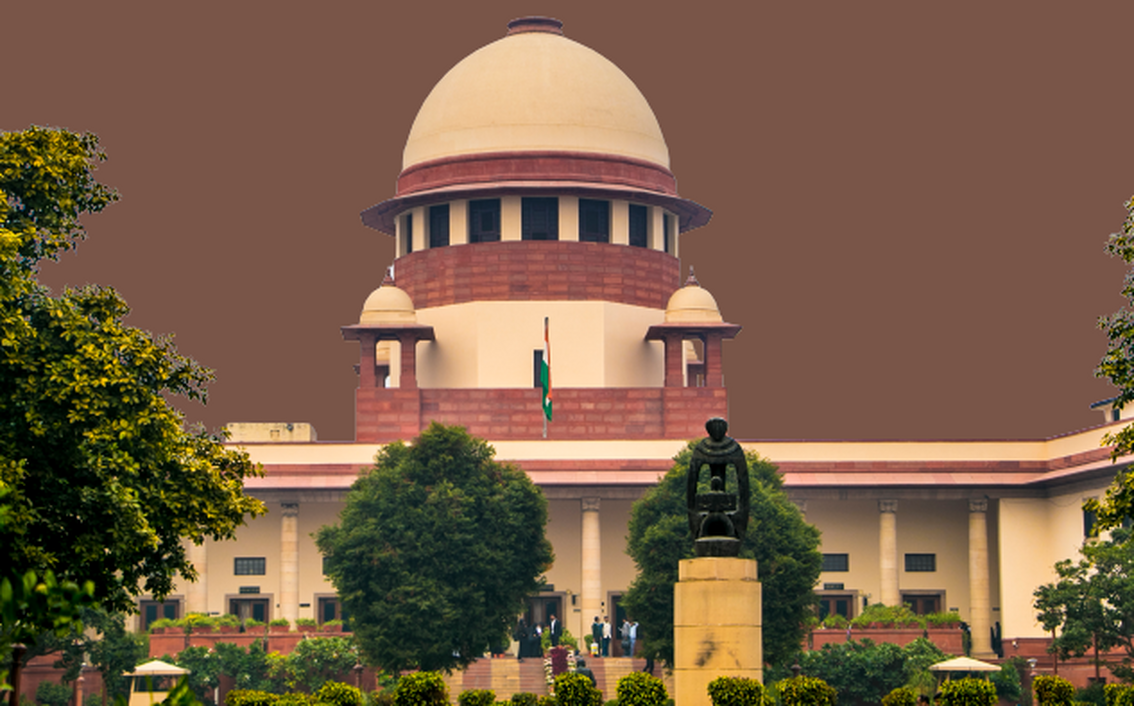If accused wants to prove that signatures on cheque are not genuine, then he has to procure a certified copy of his specimen signature from the Bank and make request to summon concerned Bank official: Apex Court
Justices B.R. Gavai & Sandeep Mehta [29-01-2024]

Read Order: AJITSINH CHEHUJI RATHOD v. STATE OF GUJARAT & ANR [SC- CRIMINAL APPEAL NO(S). 478 OF 2024]
Tulip Kanth
New Delhi, January 31, 2024: In a case pertaining to the Negotiable Instruments Act, 1881, the Supreme Court has clarified that the presumption of the indorsements on the cheque being genuine operates in favour of the holder in due course of the cheque in question. In case the accused intends to rebut such presumption, he would be required to lead evidence to this effect.
The appellant, in this matter, was prosecuted for the offence punishable under Section 138 of the Negotiable Instruments Act, 1881(NI Act) before the trial Court with an allegation that the cheque to the tune of Rs 10 lakh issued by the appellant in favour of the complainant upon being presented in the bank was dishonoured for insufficient funds and account dormant.
During the course of trial, the appellant preferred an application with a prayer to send the cheque to the handwriting expert for comparison of the handwriting as well as signature appearing thereon with a plea that his signatures had been forged on the cheque in question. This application was rejected with the observation that the application was aimed at delaying the trial. The Trial Court further observed that the matter was at the stage of defence and the accused could lead evidence to prove his claim pertaining to mismatch of signatures.
The trial Court, proceeded to convict the accused appellant. His application under Section 391 CrPC for taking additional evidence at appellate stage and seeking a direction to obtain the opinion of the handwriting expert, was rejected by the Principal Sessions Judge vide detailed order which was carried by the appellant to the High Court. This Criminal Miscellaneous Application came to be dismissed and the same was under challenge before the Top Court.
The Division Bench of Justice B.R. Gavai and Justice Sandeep Mehta said,
“At the outset, we may note that the law is well-settled by a catena of judgments rendered by this Court that power to record additional evidence under Section 391 CrPC should only be exercised when the party making such request was prevented from presenting the evidence in the trial despite due diligence being exercised or that the facts giving rise to such prayer came to light at a later stage during pendency of the appeal and that nonrecording of such evidence may lead to failure of justice.”
It was noticed by the Bench that as per the cheque return memo of the Bank, the reason for the cheque being returned unpaid was clearly recorded as funds insufficient and account dormant. The cheque was not returned unpaid for the reason that the signature thereupon differed from the specimen signature recorded with the bank.
Referring to Section 118 of the NI Act, the Bench observed sub-clause (e) provides a clear presumption regarding indorsements made on the negotiable instrument being in order in which they appear thereupon. Moreover, the Bench also stated that the certified copy of a document issued by a Bank is itself admissible under the Bankers Books Evidence Act, 1891 without any formal proof thereof. Hence, in an appropriate case, the certified copy of the specimen signature maintained by the Bank can be procured with a request to the Court to compare the same with the signature appearing on the cheque by exercising powers under Section 73 of the Indian Evidence Act, 1872.
“Thus, we are of the view that if at all, the appellant was desirous of proving that the signatures as appearing on the cheque issued from his account were not genuine, then he could have procured a certified copy of his specimen signatures from the Bank and a request could have been made to summon the concerned Bank official in defence for giving evidence regarding the genuineness or otherwise of the signature on the cheque”, the Bench further added.
Despite having opportunity, the accused appellant did not put any question to the bank official examined in defence for establishing his plea of purported mismatch of signature on the cheque in question and hence, the Bench observed that the appellate Court was not required to come to the aid and assistance of the appellant for collecting defence evidence at his behest.
“The presumptions under the NI Act albeit rebuttable operate in favour of the complainant. Hence, it is for the accused to rebut such presumptions by leading appropriate defence evidence and the Court cannot be expected to assist the accused to collect evidence on his behalf”, it further added while also noting that the request of the appellant for comparison of the signature was rejected and the same order had attained finality.
It was also asserted that there was no requirement for the appellate Court to have exercised power under Section 391 CrPC for summoning the official from the Post Office. Thus, without finding any infirmity in the impugned orders, the Bench dismissed the appeal.
Sign up for our weekly newsletter to stay up to date on our product, events featured blog, special offer and all of the exciting things that take place here at Legitquest.




Add a Comment